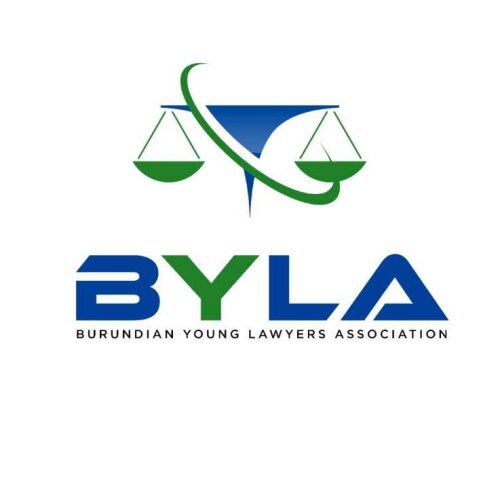Best Private Equity Lawyers in Burundi
Share your needs with us, get contacted by law firms.
Free. Takes 2 min.
Or refine your search by selecting a city:
List of the best lawyers in Burundi
About Private Equity Law in Burundi
Private equity refers to investments made into privately held companies that are not listed on a public stock exchange. In Burundi, the private equity sector is developing as local and international investors increasingly look to support promising businesses and infrastructure projects. Private equity transactions in Burundi involve the acquisition of equity stakes in companies, often to provide growth capital, fund expansion, or facilitate ownership transitions. Due to the country’s evolving legal and regulatory frameworks, navigating private equity deals can be complex, requiring specialized legal expertise to manage risks and ensure compliance with all applicable laws.
Why You May Need a Lawyer
Engaging in private equity in Burundi involves legal processes that can be complicated for individuals or businesses unfamiliar with the area. A lawyer experienced in private equity can be invaluable in situations such as:
- Structuring and negotiating private equity deals
- Conducting due diligence on target companies
- Drafting and reviewing investment agreements
- Ensuring compliance with local regulatory obligations
- Managing disputes or exit strategies such as buy-outs or public offerings
- Advising on tax implications and structuring investments efficiently
- Protecting intellectual property and other key assets in transactions
- Navigating cross-border investments and currency exchange regulations
Without proper legal guidance, investors and businesses may face unforeseen liabilities, compliance issues, or invalid contracts that could jeopardize the investment.
Local Laws Overview
Private equity activities in Burundi are influenced by several areas of law, including corporate law, investment law, tax regulations, and foreign exchange controls. Some key legal aspects to be aware of include:
- Company Law. The Burundian Code des Sociétés (Companies Act) governs the formation, management, and dissolution of companies, stipulating required procedures for share transfers, shareholder rights, and governance structures.
- Investment Code. The Investment Code of Burundi provides incentives and protections for both local and foreign investors, detailing processes for company registration, repatriation of profits, and guarantees against expropriation.
- Regulatory Approvals. Certain investments, especially those in strategic sectors or by foreign nationals, may require prior approval from government authorities, such as the Burundi Investment Promotion Authority (API).
- Taxation. The General Tax Code outlines corporate taxes, capital gains, and withholding taxes applicable to private equity transactions, with incentives available for qualifying investments.
- Foreign Exchange Regulations. The Central Bank of Burundi regulates currency transfers, especially those involving bringing in or repatriating foreign capital.
- Labor and Employment Law. Investments involving mergers or restructuring may engage employment law provisions, including employee rights and severance obligations.
Because these laws frequently change and are subject to interpretation, obtaining legal advice is essential throughout the investment lifecycle.
Frequently Asked Questions
What is private equity?
Private equity is an investment class involving capital provided to private companies in exchange for ownership shares, typically to fund growth or restructurings.
Can foreigners invest through private equity in Burundi?
Yes, Burundi allows foreign individuals and corporations to invest in private companies, but certain sectors may require government approval or have ownership restrictions.
What is due diligence in a private equity transaction?
Due diligence is the process of assessing a target company’s financial, legal, and operational standing before committing investment funds. It helps prevent unforeseen liabilities.
Are there tax incentives for private equity investments?
Burundi’s Investment Code provides various tax incentives for qualified investments, including reduced corporate tax rates and exemptions, subject to compliance with all conditions.
What legal structure is best for private equity deals in Burundi?
Common structures include limited liability companies (SARL) and public limited companies (SA), with the choice depending on the size, sector, and goals of the investment.
Are there restrictions on profit repatriation for foreign investors?
Foreign investors can generally repatriate profits and capital, but these actions must comply with foreign exchange and tax regulations overseen by the Central Bank of Burundi.
What documents are essential in a private equity deal?
Key documents include the share purchase agreement, shareholder agreement, investment contract, and various corporate resolutions and regulatory filings.
How long does the private equity investment process take?
Timelines vary depending on factors such as regulatory approvals, due diligence outcomes, and deal complexity, typically ranging from several weeks to a few months.
What role does the government play in private equity?
Government agencies such as the Burundi Investment Promotion Authority regulate and promote private investment, grant approvals, and monitor compliance with relevant laws.
How can disputes be resolved in private equity transactions?
Disputes may be resolved through negotiation, mediation, arbitration, or litigation, depending on the contract terms and the preferences of the parties involved.
Additional Resources
Several organizations and agencies provide support, information, or regulatory oversight for private equity activities in Burundi. These include:
- Burundi Investment Promotion Authority (API)
- Central Bank of Burundi (BRB) for foreign exchange regulations
- Burundi Revenue Authority (OBR) for taxes and incentives
- Burundi Business Registration Office
- Ministry of Justice and Legal Protection
- Burundi Bar Association for finding qualified lawyers
- Regional organizations, such as the East African Community (EAC), that influence cross-border investments
Law firms with expertise in commercial law can provide tailored advice, and business chambers may offer practical insights from an investor perspective.
Next Steps
If you are considering a private equity investment or transaction in Burundi, take the following steps:
- Identify your investment goals and preferred structure
- Consult a qualified Burundian lawyer specializing in private equity law
- Gather and review all required documentation for due diligence
- Ensure compliance with all regulatory requirements and seek necessary approvals
- Negotiate and finalize transaction agreements with legal guidance
- Engage tax and financial advisors to optimize your investment situation
Seeking professional legal support early in the process will help you avoid common pitfalls and ensure that your private equity venture in Burundi is secure, compliant, and positioned for success.
Lawzana helps you find the best lawyers and law firms in Burundi through a curated and pre-screened list of qualified legal professionals. Our platform offers rankings and detailed profiles of attorneys and law firms, allowing you to compare based on practice areas, including Private Equity, experience, and client feedback.
Each profile includes a description of the firm's areas of practice, client reviews, team members and partners, year of establishment, spoken languages, office locations, contact information, social media presence, and any published articles or resources. Most firms on our platform speak English and are experienced in both local and international legal matters.
Get a quote from top-rated law firms in Burundi — quickly, securely, and without unnecessary hassle.
Disclaimer:
The information provided on this page is for general informational purposes only and does not constitute legal advice. While we strive to ensure the accuracy and relevance of the content, legal information may change over time, and interpretations of the law can vary. You should always consult with a qualified legal professional for advice specific to your situation.
We disclaim all liability for actions taken or not taken based on the content of this page. If you believe any information is incorrect or outdated, please contact us, and we will review and update it where appropriate.
Browse private equity law firms by city in Burundi
Refine your search by selecting a city.












